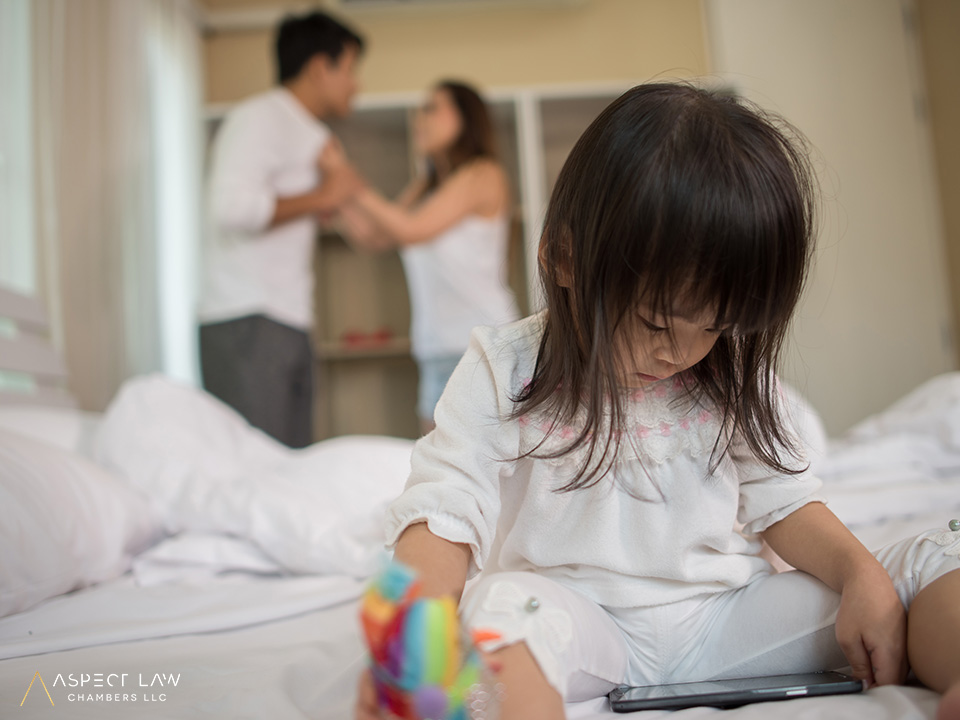What is a Personal Protection Order and When do I need it?
AspectLaw | February 15, 2022

Victims of family violence are often left terrified and at wits’ end. In Singapore, one can apply to the Family Courts for a Personal Protection Order to protect oneself or a family member from violence perpetrated by another family member. Read on to learn more about Personal Protection Order, family violence, and who the order can be issued against.
What is a Personal Protection Order?
The Personal Protection Order is a court order against family violence available under Section 65 of the Women’s Charter. In order to be granted a Personal Protection Order, the applicant must prove that
1. Violence has been/is likely to be committed against a family member
2. The Personal Protection Order is necessary for the protection of the family member
There are a few different types of protection orders in Singapore granted for various issues. They include:
- Personal Protection Order (PPO) prevents the abuser from engaging in family violence. It may also include a term prohibiting the abuser from inciting or assisting anyone else in committing family violence against a family member.
- Expedited Order (EO) is an urgent and temporary PPO issued without a trial. It is granted immediately upon the application of a PPO if the court determines that there is imminent danger of family violence. It is valid for only 28 days, or when the trial for the application of a PPO begins. An EO does not have to be applied for.
- Domestic Exclusion Orders prohibit the abuser from returning to the house where the family has been living. It can either ban the abuser from the entire house or from specific areas of the house. The Domestic Exclusion Order does not affect or transfer the title or ownership of the house. It is possible, for example, to exclude a husband from the house even if the husband is the sole owner of the house.
- Counselling Orders, which are issued concurrently with a PPO, refer parties in a PPO application to counselling. Counselling is provided at a family support organisation, and children may be required to attend as well. The court will set a date for a counselling review so that the court can assess the progress of the counselling and decide whether to discharge or continue with the order.
What is Family Violence?
“Family violence” means the commission of one of the below acts as stated under Section 64 of the Women’s Charter:
1. Wilfully or knowingly placing, or attempting to place, a family member in fear of hurt
2. Causing hurt to a family member by such an act which is known or ought to have been known would result in hurt
3. Wrongfully confining or restraining a family member against his or her will
4. Causing continual harassment with intent to cause or knowing that it is likely to cause anguish to a family member.
This does not include any force lawfully used in self-defence, or by way of correction towards a child below 21 years of age.
Who can File for a Personal Protection Order?
- If you are 21 years of age and above, you may make the application yourself.
- If you are an incapacitated person of 21 years of age and above, then, a guardian, relative, a person responsible for your care, or any person appointed by the Minister may apply to protect you on your behalf.
- If you are under 21 years of age and are married, or have been previously married, you can only make an application for yourself, your child (including an adopted or stepchild) below 21 years of age, or a relative below 21 years of age for whom you are responsible for the care of.
- If you are under 21 years of age and not married, a family member who is 21 years of age and above can file an application on your behalf.
Who can you be Protected from?
You can file a personal protection order against:
- Your father or mother
- Your brothers or sisters
- Your spouse or former spouse
- Your father-in-law or mother-in-law
- Your child, including an adopted child or stepchild
- Any other relative who in the court’s opinion should be regarded as a member of your family, given the circumstances.
You cannot file a personal protection order against:
- Your partner to whom you are not married to
- Your former parents-in-law
- Any other relative whom the court does not regard as a member of your family
Also Read: Things To Know About Getting Divorced
Family violence is a serious problem that should not be tolerated. If you or someone you know is experiencing family violence, do not hesitate to seek help. File for a personal protection order today.
Aspect Law Chambers specialises in Family and Criminal Law that champions amicable resolutions at cost-effective levels. Contact us today for more legal assistance.
Recent Posts
All Post
Family Law | August 01, 2022
What is a Family Lawyer? What Do They Do?
What is a Family Lawyer? What Do They Do? AspectLaw | August 01, 2022 Many...

Alternatives to Divorce | July 15, 2022
Alternatives to Divorce: Annulment and Separation
Alternatives to Divorce: Annulment and Separation AspectLaw | July 15, 2022 Divorce is one way...
